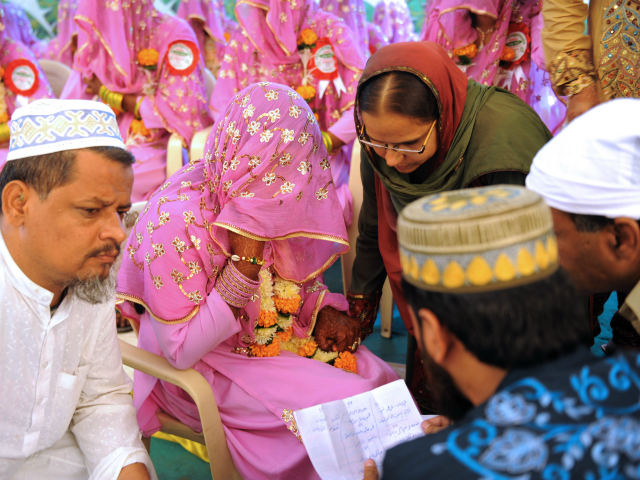High Court Recognises Shariah Law in Divorce Case
Post# of 63914
< >



In a legal first, a British High Court judge has recognised a shariah marriage when ruling on a ‘divorce’ petition of a Muslim woman, likely setting a precedent on the acceptance of Islamic marriages and divorces in the UK.
Mr Justice Williams ruled that an estranged Muslim couple’s Islamic marriage does fall under the scope of the 1973 Matrimonial Causes Act and that they could, therefore, ‘divorce’ — despite the couple never having had a legal civil ceremony, reports The Guardian.
Nasreen Akhter and Mohammed Shabaz Khan, both of Pakistani heritage, had ‘married’ in an Islamic nikah ceremony conducted by an imam in 1998 in West London, and Mr Khan, a businessman, was said by Ms Akhter to have “always introduced me as his wife”.
Ms Akhter attempted to file for divorce, which her partner rejected, with Mr Khan saying that they were not legally married, but only under Islamic law.
Judge Williams disagreed, writing that the marriage had been valid but was now void under section 11 of the 1973 Matrimonial Causes Act because it was “entered into in disregard of certain requirements as to the formation of marriage. It is therefore a void marriage and the wife is entitled to a decree of nullity.”
As a result of Judge Williams’ decision, Ms Akhter, a solicitor, will be able to attempt to claim the assests of her ‘husband’ in a settlement.
The ruling was celebrated by family law specialist Hazel Wright from Hunters Solicitors, who said it gave redress to those suffering “discrimination”.
“Ms Akhtar and Mr Khan both knew that their Sharia marriage was not a legally registered marriage. It became vital for Ms Akhtar that the English divorce court rule in her favour, that the marriage should be recognised as void, and not a non-marriage,” Ms Wright said.
“Otherwise she would not have any rights to make any financial claims for herself.
“The ruling that this marriage was just like a marriage for the couple, their families and friends, and indeed it satisfied the UAE authorities, and so was a valid but void marriage has given heart to many who otherwise suffer discrimination.”
A review released this year into shariah law in Britain — originally commissioned in 2016 by then-Home Secretary Theresa May, who said that Muslims in Britain “benefit a great deal” from the parallel Islamic rules — recommended that Muslims marry under civil as well as religious ceremonies to protect partners’ legal rights.
A survey conducted by British television broadcaster Channel 4 found last year that more than six in ten Muslim couples are not legally married, with Aina Khan, a specialist in Islamic law, saying that her “anecdotal evidence suggests that in the last five years the proportion of people under 40 having nikah-only marriages is as high as 80 percent”.
In 2008, then head of England’s church and the seat of the worldwide Anglican communion Archbishop of Canterbury Rowan Williams said that the adoption of shariah law in the United Kingdom “seems unavoidable”.
 (0)
(0) (0)
(0)